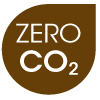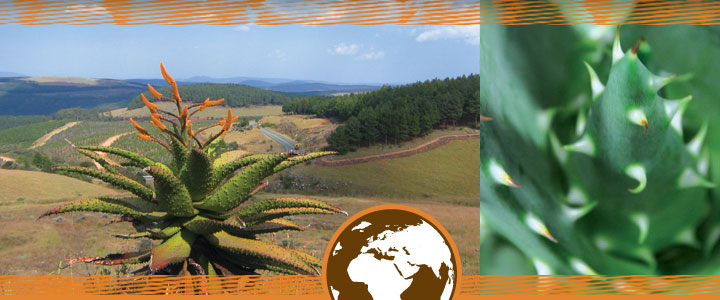Born in South Africa
The Aloe belongs to the family of the Xanthorrhoeaceae and grows in the vast and rugged landscape of South Africa, mostly in the area of Port Elisabeth. Some varieties grow like trees and they can mostly be found in the North-West of South Africa all the way to in Namibia. The plants are stiff and rough, provided with thick fleshy leaves in which the plant stores water to tide over during the dry spells. The South African flora belongs to the most important floras in the world. No less than 10% of all known types of plants can be found here.Care
The Aloe likes half shadow or shadow. In principle the plant can be put in almost any place in the house you like: from the window sill on the north side to the bedroom, as long as it is not in full sun. In the summer months the Aloe can be placed outside on a terrace or balcony but then too not in full sun. The plant only needs a little water and therefore can do without for a fairly long period of time. Moderate watering once a month is sufficient.Intended for decoration and not for consumption.



Aloë images
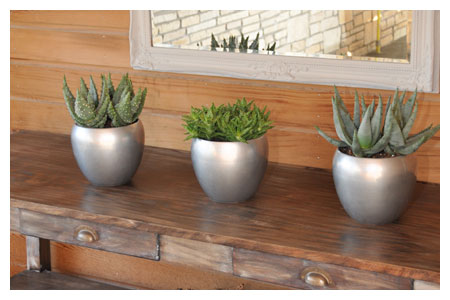
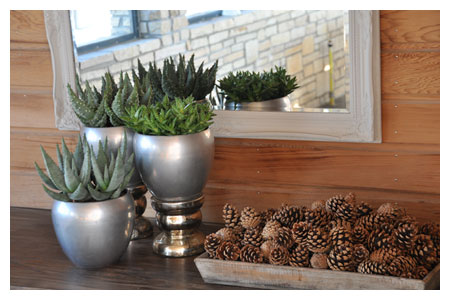
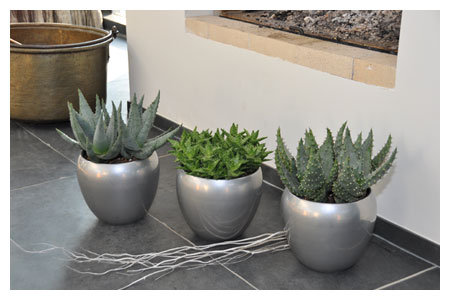
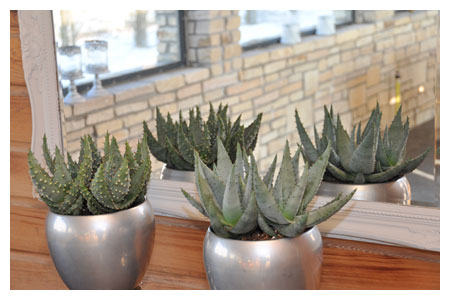
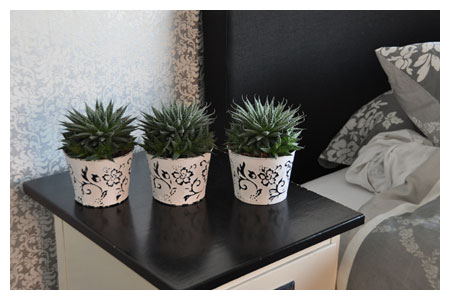
Environmentally friendly grown
Sustainable business practices are becoming more and more important and this is expressed in the environmentally-friendly manner in which these succulents are cultivated:- Minimal use of weedkillers and fertilisers.
- 100% re-circulated water, so no draining to the outside. Water disinfected via a UV filter, so all water and fertilisers are re-used.
- Cultivators search for disease and pests weekly, so any starting attacks on the plants are noticed almost right away and can be combated on a small scale, therefore needing less weedkiller
- The plants are cultivated without the use of gas (zero gas) so there is no CO2 emission (zero CO2). All because the greenhouses are heated with residual heat.
Pure Succulents makes use of environmentally-friendly cultivation and packaging materials as well.
Recycled cultivation pot
The plastic cultivation pot consists of 100% recycled material. In other words, the cultivation pot is made from waste products that have been re-used.
FSC
The products are packed and transported in a cardboard tray, which has received the FSC certificate of approval. The Forest Stewardship Council (FSC) is an international organisation that promotes the responsible management of the world’s forests. FSC talks of responsible forest management when the social, ecological and economical aspects of forestry are balanced. This means that for every tree that is cut down a new tree will be planted.
Pure Succulents has a number of certifications in the area of environment and durability:
MPS-A
MPS-ABC is a unique standard in the world. It works like a measure that shows to what extent a company is environmentally friendly. MPS-ABC consists of various levels: MPS-A, MPS-B and MPS-C. Pure Succulents has the MPS-A status, which stands for the most environmentally friendly business.
MPS-GAP
Supermarkets want to purchase safe, durably cultivated, qualitatively good and traceable products. The European supermarket organisations (EUREP) have actually drawn up a number of criteria for this (GlobalGAP). The MPS-GAP certificate shows that Pure Succulents complies with these criteria.

